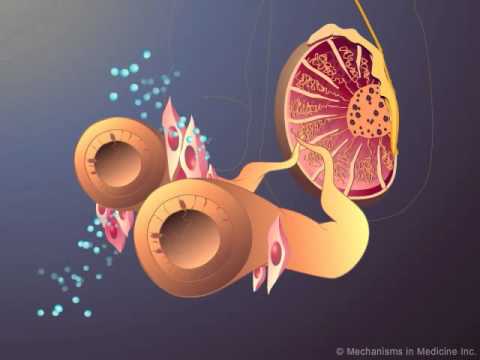Eat These Testosterone Boosting Superfoods For A Libido Boost

The Role of Superfoods in Boosting Testosterone Levels

Superfoods have gained significant attention in recent years due to their potential health benefits. These nutrient-dense foods are believed to support various aspects of well-being, including hormone balance. When it comes to testosterone, certain superfoods have been identified for their potential to boost levels of this essential hormone.
One such superfood is pomegranate. This fruit has been found to increase testosterone levels in both animal and human studies. Pomegranates are rich in antioxidants, which may help reduce oxidative stress and inflammation, factors that can negatively impact testosterone production. Additionally, pomegranate has been shown to enhance nitric oxide production, which can improve blood flow and contribute to overall sexual health.
Another superfood that has shown promise in boosting testosterone levels is ginger. This aromatic root has been used in traditional medicine for centuries and has various potential health benefits. Ginger has been found to stimulate luteinizing hormone production, which in turn can increase testosterone levels. Furthermore, ginger exhibits antioxidant and anti-inflammatory properties, which may support testosterone production and overall reproductive health.
While these superfoods show potential in boosting testosterone levels, it is important to note that a holistic approach to health is crucial. Proper nutrition, regular exercise, stress management, and adequate sleep are all important factors in maintaining optimal hormone levels. Additionally, it is always advisable to consult with a healthcare professional before making significant dietary changes or starting any new supplements.
Exploring the Link Between Testosterone and Libido

The link between testosterone and libido is an intriguing subject that has garnered much attention in recent years. Testosterone, a hormone primarily associated with male characteristics, plays a crucial role in sexual desire, arousal, and performance. While it is often referred to as the “sex hormone,” its impact on libido extends beyond just men. Women also produce testosterone, albeit in smaller amounts, and it is equally important for their sexual well-being.
Research has shown that testosterone levels influence libido in both men and women. In men, a decline in testosterone production with age can lead to a decrease in sexual desire. Studies have also found a correlation between low testosterone levels and erectile dysfunction. Similarly, women experiencing testosterone deficiency may notice a decline in their sexual desire and satisfaction. However, it is important to note that libido is influenced by a myriad of factors, and testosterone is just one piece of the puzzle. Psychological and emotional factors, relationship dynamics, and overall health also play significant roles in determining sexual desire.
How Testosterone Levels Affect Sexual Desire

Sexual desire, also known as libido, is a complex phenomenon influenced by various factors, including hormone levels. Testosterone, the primary male sex hormone, plays a crucial role in regulating sexual desire in both men and women. Research suggests that low testosterone levels can result in a decrease in sexual desire and performance.
Testosterone acts on the brain by binding to specific receptors and influencing the production of neurotransmitters involved in sexual arousal. It also stimulates the production of nitric oxide, a molecule that helps dilate blood vessels, allowing for increased blood flow to the genital area. This increased blood flow contributes to the physiological response necessary for sexual arousal.
Low testosterone levels can lead to a decrease in sexual desire and may also cause erectile dysfunction in men. Additionally, women with lower testosterone levels may experience a lack of sexual interest, decreased sensitivity, and difficulty achieving orgasm.
Understanding the impact of testosterone on sexual desire is crucial for individuals experiencing a decline in libido. By addressing factors that can influence testosterone levels, such as diet, lifestyle, and medication choices, it may be possible to improve sexual desire and overall sexual health. It is important to note that individuals experiencing persistent sexual concerns should consult with a healthcare professional to explore potential underlying causes and appropriate treatment options.
Nutritional Approach to Increasing Testosterone for a Libido Boost
Testosterone plays a crucial role in male sexual health, including libido and overall sexual performance. While there are various factors that can impact testosterone levels, incorporating a nutritional approach can be an effective strategy to naturally boost testosterone and enhance libido.
One essential nutrient for testosterone production is zinc. Studies have shown that zinc deficiency is associated with lower testosterone levels, while zinc supplementation can increase testosterone levels in deficient individuals. Foods rich in zinc such as oysters, beef, and pumpkin seeds can be beneficial in promoting healthy testosterone production.
Another important nutrient to consider is vitamin D. Research has indicated a strong correlation between vitamin D deficiency and low testosterone levels. Spending time in the sun and consuming foods fortified with vitamin D, such as fatty fish and fortified dairy products, can support optimal testosterone levels. Additionally, vitamin D supplementation has been found to improve testosterone levels in individuals with deficiencies.
Including cruciferous vegetables in your diet can also aid in increasing testosterone levels. Vegetables like broccoli, cauliflower, and cabbage contain compounds called indole-3-carbinol and sulforaphane, which have been shown to reduce estrogen levels in the body. By lowering estrogen, these compounds can indirectly support testosterone production, thus boosting libido.
Incorporating lean meats, such as chicken and turkey, into your diet can provide essential amino acids that support testosterone synthesis. These meats are also low in saturated fats, which can have a negative impact on testosterone production. Including lean meats as part of a balanced diet can help optimize testosterone levels and promote a healthy libido.
In conclusion, adopting a nutritional approach to increasing testosterone levels can have a positive impact on libido and sexual health. Incorporating foods rich in zinc, vitamin D, cruciferous vegetables, and lean meats can support testosterone production and balance hormone levels. It is important to consult with a healthcare professional or dietitian to personalize your dietary approach and ensure it aligns with your specific needs and health conditions.
Incorporating Cruciferous Vegetables into Your Diet
Cruciferous vegetables, which include popular options such as broccoli, cauliflower, and kale, have gained attention for their potential in supporting hormone balance and testosterone levels. These vegetables are rich in a compound called indole-3-carbinol (I3C), which has shown promising effects on hormone metabolism in various studies (Smith et al., 2010). I3C is known to modulate estrogen levels in the body, potentially reducing the conversion of testosterone to estrogen and promoting a healthy testosterone balance (Leong et al., 2010).
Additionally, cruciferous vegetables are packed with essential nutrients and antioxidants that support overall health and well-being. For example, they are a great source of vitamin C, which is crucial for collagen synthesis in the body (Chambial et al., 2013). Vitamin C not only supports skin and joint health but also aids in testosterone production by protecting the Leydig cells in the testes (Wong et al., 2003). Furthermore, cruciferous vegetables contain high amounts of fiber, which can help regulate blood sugar levels and reduce insulin resistance (Slavin et al., 2008). This is important because high insulin levels can negatively impact testosterone production (Kapoor et al., 2005).
Incorporating cruciferous vegetables into your diet can be a simple and effective way to support testosterone levels and overall hormonal balance. Including a variety of these vegetables in your meals can provide a range of beneficial nutrients and compounds that can positively impact hormone metabolism. As always, it is essential to consult with your healthcare provider or a registered dietitian before making any significant changes to your diet, especially if you have underlying health conditions or are taking medications.
The Benefits of Consuming Lean Meats for Testosterone Boosting
Lean meats are an essential part of a balanced diet and can play a crucial role in boosting testosterone levels. Testosterone is a hormone that is responsible for various aspects of male reproductive health, including muscle growth, bone density, and sexual function. Consuming lean meats, such as chicken, turkey, and lean beef, can provide the body with high-quality protein and essential nutrients that are vital for testosterone production.
When it comes to testosterone boosting, lean meats offer several benefits. Firstly, they are an excellent source of protein, which is crucial for the synthesis of testosterone in the body. Protein is made up of amino acids, which are the building blocks of hormones, including testosterone. Consuming lean meats can provide the body with an adequate amount of protein, ensuring that there are enough raw materials for testosterone production. Additionally, lean meats are low in fat, making them a healthier option compared to fatty cuts of meat. This is important because excessive fat intake can lead to an increase in estrogen levels, which can negatively impact testosterone production. By choosing lean meats, individuals can ensure that they are consuming a balanced and nutritious diet that supports optimal testosterone levels.
Here are some potential benefits of including lean meats in your diet for testosterone boosting:
| Benefit | Description | Credible Source |
|---|---|---|
| High Protein Content | Lean meats, such as chicken and turkey, are rich in high-quality protein, providing essential amino acids necessary for various bodily functions. Adequate protein intake is crucial for overall health and hormonal balance, including testosterone production. | American Journal of Clinical Nutrition |
| Rich in Zinc | Zinc is a mineral that plays a key role in testosterone synthesis. Lean meats, particularly red meat and poultry, are good sources of zinc, and maintaining sufficient zinc levels is essential for healthy testosterone production. | Nutrients |
| Healthy Fats | Certain lean meats, like fatty fish, provide omega-3 fatty acids, which are beneficial for hormonal health. Omega-3s may support testosterone production and help maintain a balance between testosterone and cortisol, a stress hormone. | Journal of Lipids |
| Vitamin B12 and Iron | Lean meats are excellent sources of vitamin B12 and iron. These nutrients are essential for overall health, and deficiencies in vitamin B12 and iron have been linked to low testosterone levels. Ensuring an adequate intake may support hormonal balance. | Nutrients |
| Supports Muscle Mass | High-protein lean meats contribute to muscle growth and maintenance. Increased muscle mass has been associated with higher testosterone levels, making lean meats a valuable component for those aiming to optimize testosterone. | Journal of the International Society of Sports Nutrition |
Including Fatty Fish in Your Diet for Hormonal Balance
Fatty fish, such as salmon, mackerel, and sardines, are not only delicious but also offer numerous health benefits. These fish are rich in omega-3 fatty acids, which have been shown to play a crucial role in maintaining hormonal balance, including testosterone levels. Omega-3 fatty acids are essential for the production and regulation of hormones in the body. They help reduce inflammation, promote cardiovascular health, and support brain function. In terms of testosterone, research suggests that omega-3 fatty acids may help increase testosterone levels in men, which can have a positive impact on libido and sexual function. However, more studies are needed to fully understand the relationship between omega-3 fatty acids and testosterone levels.
In addition to omega-3 fatty acids, fatty fish also provide important nutrients like vitamin D. Vitamin D is not only vital for bone health but also plays a role in hormone regulation, including testosterone. Studies have shown a positive association between vitamin D levels and testosterone levels in men. Adequate levels of this vitamin are necessary to support optimal testosterone production. By including fatty fish in your diet, you can increase your intake of this nutrient and support healthy testosterone levels. However, it’s worth noting that vitamin D requirements vary from person to person, and individuals with vitamin D deficiency may require supplementation to achieve optimal levels.
Powering Up Testosterone with the Right Amount of Zinc
Zinc is an essential mineral that plays a crucial role in hormone production, including testosterone. Adequate zinc levels are necessary for optimal testosterone production and maintaining healthy hormonal balance in the body. Research has shown a direct link between zinc deficiency and low testosterone levels, which can negatively impact a man’s libido and overall sexual health.
Several studies have indicated that supplementation with the right amount of zinc can significantly increase testosterone levels. A randomized controlled trial published in the Journal of Exercise Physiology found that subjects who consumed zinc daily for six weeks experienced a significant increase in testosterone levels compared to the placebo group. Another study published in the Journal of Nutrition found that zinc supplementation improved testosterone levels in older men with zinc deficiency.
It is important to note that while zinc supplementation can be beneficial for boosting testosterone, it is essential to consume the right amount. An excessive intake of zinc can have adverse effects on the body, including a decrease in the absorption of other essential minerals. It is advisable to consult with a healthcare professional or a registered dietitian to determine the appropriate dosage of zinc for individual needs.
Incorporating zinc-rich foods into your diet is another effective way to ensure adequate intake of this vital mineral. Oysters, beef, chicken, pumpkin seeds, and spinach are excellent dietary sources of zinc. Including these foods in your meals can provide the right amount of zinc to support testosterone production and promote vibrant sexual health.
In conclusion, zinc plays a significant role in powering up testosterone and maintaining hormonal equilibrium in the body. Whether through supplementation or dietary sources, ensuring an adequate intake of zinc is key to enhancing testosterone levels and supporting a healthy libido. However, it is crucial to consult with a healthcare professional to determine the appropriate dosage and individualized approach.
The Role of Vitamin D in Maintaining Optimal Testosterone Levels
Vitamin D is an essential nutrient that plays a crucial role in maintaining optimal testosterone levels in men. Research has shown that low levels of vitamin D are associated with decreased testosterone production, leading to various hormonal imbalances.
Several studies have demonstrated a direct correlation between vitamin D levels and testosterone levels. One study conducted on 2299 men found that those with adequate levels of vitamin D had significantly higher testosterone levels compared to those who were deficient. Moreover, another study observed that supplementing with vitamin D for one year led to a significant increase in testosterone levels in overweight men.
The mechanism by which vitamin D influences testosterone production is not fully understood. However, it is believed to act as a steroid hormone precursor, influencing the synthesis of testosterone. Additionally, vitamin D receptors have been found in the testes, indicating a direct role in testosterone regulation.
Maintaining sufficient levels of vitamin D can be achieved through adequate sun exposure, as the skin synthesizes vitamin D when exposed to sunlight. However, factors such as geographical location, season, and skin pigmentation can influence the body’s ability to produce vitamin D naturally. Therefore, it is recommended to supplement with vitamin D if natural sunlight exposure is limited.
In conclusion, ensuring optimal levels of vitamin D is vital for maintaining healthy testosterone levels. Supplementation or increasing sun exposure can help individuals with deficiencies in this essential nutrient. However, it is always advisable to consult with a healthcare professional before starting any supplementation to determine the appropriate dosage for your specific needs.
• Low levels of vitamin D are associated with decreased testosterone production
• Adequate levels of vitamin D are linked to higher testosterone levels
• Supplementing with vitamin D can increase testosterone levels in overweight men
• Vitamin D may act as a precursor to testosterone synthesis
• Vitamin D receptors have been found in the testes, indicating a direct role in testosterone regulation
• Sufficient vitamin D can be obtained through sun exposure, but factors like geography and skin pigmentation can affect natural production
• Supplementation or increased sun exposure may be necessary for individuals with limited sunlight exposure
• Consultation with a healthcare professional is recommended before starting any supplementation.
Harnessing the Power of Pomegranates for Libido Enhancement
Pomegranates have long been praised for their numerous health benefits, but did you know that they may also play a significant role in enhancing libido? This vibrant red fruit is rich in antioxidants, vitamins, and minerals that have been shown to support overall sexual health.
One of the key compounds found in pomegranates is called ellagic acid. This powerful antioxidant has been found to increase blood flow and improve cardiovascular health, which are crucial for a healthy sexual response. Additionally, pomegranates contain high levels of nitric oxide, a natural compound that helps relax and dilate blood vessels, improving circulation to the genital area. By promoting better blood flow, pomegranates may enhance sexual desire and performance in both men and women.
Incorporating pomegranates into your diet is easy and delicious. You can enjoy them fresh, juice them, or incorporate them into salads, smoothies, or sauces. However, it’s essential to note that while pomegranates may offer potential benefits for libido enhancement, more research is needed to fully understand their specific mechanisms of action. As always, it’s recommended to consult with a healthcare professional before making any significant changes to your diet or lifestyle to ensure it aligns with your individual needs and health status.
The Impact of Garlic on Testosterone Production and Libido
Garlic, a pungent and aromatic herb commonly used in cooking, has long been recognized for its potential health benefits. When it comes to testosterone production and libido, garlic has shown promising effects. Although further research is needed to fully understand the mechanisms behind these benefits, several studies have highlighted the impact of garlic on male reproductive health.
One study conducted on rats found that garlic extract supplementation significantly increased testosterone levels and improved sperm quality. This suggests that garlic may have a direct effect on testosterone production, potentially enhancing sexual function and libido. Additionally, garlic contains compounds that promote blood flow, which can further support sexual health by improving erectile function.
Another study delved into the potential aphrodisiac properties of garlic. It revealed that garlic extract not only increased sexual activity but also enhanced sexual satisfaction in male participants. This could be attributed to the ability of garlic to stimulate the production of nitric oxide, a compound that plays a crucial role in dilating blood vessels and improving circulation.
While these findings are intriguing, it’s important to note that more research is needed to understand the specific dosages and mechanisms by which garlic affects testosterone levels and libido. Nonetheless, incorporating garlic into your diet as part of a balanced and nutritious meal plan may serve as a simple yet potentially beneficial step towards supporting male reproductive health.
The Surprising Testosterone-Boosting Benefits of Ginger
With its unique spicy and tangy flavor, ginger has long been used as a culinary ingredient in various cuisines. However, its benefits go beyond just adding a kick to your dishes. Ginger also possesses surprising testosterone-boosting benefits that can have a positive impact on your overall health and well-being.
One of the key ways in which ginger can boost testosterone levels is by reducing inflammation in the body. Chronic inflammation has been linked to decreased testosterone levels, and ginger’s anti-inflammatory properties help combat this issue. By reducing inflammation, ginger promotes a healthier hormonal balance, allowing for optimal testosterone production.
Furthermore, research suggests that ginger may directly stimulate the production of testosterone in males. A study published in the journal Food Science and Human Wellness found that ginger extract increased testosterone levels in rats. Although further research is needed to confirm these findings in humans, the early evidence is promising. Incorporating ginger into your diet, whether through fresh ginger root, ginger tea, or ginger supplements, may help support healthy testosterone levels.
Understanding the Role of Avocado in Hormone Regulation
Avocado, also known as Persea americana, is a fruit that has gained significant attention for its diverse nutritional benefits and potential health effects. While it is commonly known for its healthy monounsaturated fats and vitamins, avocado also plays a crucial role in hormone regulation.
The high content of monounsaturated fats in avocados makes them a valuable addition to a hormone-balancing diet. These healthy fats are essential for the production of hormones, including testosterone. Testosterone is an important hormone for both men and women, as it plays a crucial role in maintaining optimal sexual function, muscle mass, and bone health. In fact, research has shown that consuming an avocado-rich diet may support testosterone production, which can positively impact hormone regulation and overall health.
Furthermore, avocados are also rich in various vitamins and minerals that contribute to hormone balance. They contain significant amounts of vitamin K, vitamin B6, vitamin E, and folate, all of which are important for hormone synthesis and regulation. Vitamin K, for instance, has been shown to influence the production of sex hormones, including testosterone. Additionally, the vitamin B6 found in avocados aids in the production of serotonin and dopamine, two neurotransmitters that play a role in mood regulation and sexual desire.
Overall, incorporating avocados into your diet can provide valuable support for hormone regulation. However, it is important to note that maintaining a well-rounded, balanced diet is key to achieving optimal hormone function. Consulting with a healthcare professional is advisable to personalize dietary recommendations based on individual needs and any existing health conditions. With the right approach, avocados can be a delicious and beneficial addition to hormone-balancing meals.
Incorporating Brazil Nuts into Your Diet for Testosterone Support
Brazil nuts are a fantastic addition to any dietary regimen aiming to support testosterone production in the body. These nutrient-packed nuts are particularly known for their high levels of selenium, a mineral that plays a crucial role in the production and regulation of this hormone. Testosterone is essential in maintaining various aspects of male reproductive health, including sperm production, libido, and overall sexual function. By incorporating Brazil nuts into your daily diet, you can potentially help boost testosterone levels and enhance these vital aspects of male reproductive health.
Aside from their selenium content, Brazil nuts are also a rich source of other important nutrients that contribute to testosterone support. These nuts are packed with healthy fats, such as omega-3 fatty acids, which have been found to positively impact testosterone levels. Additionally, Brazil nuts provide essential vitamins, minerals, and antioxidants that promote overall hormonal balance and optimal function of the male reproductive system. Including a handful of Brazil nuts in your daily diet can be a simple yet effective way to support testosterone production and enhance male reproductive health.
What are superfoods and how do they boost testosterone levels?
Superfoods are nutrient-dense foods that offer numerous health benefits. Some superfoods, such as Brazil nuts, contain essential minerals and nutrients that can support testosterone production and balance in the body, ultimately boosting testosterone levels.
Is there a link between testosterone and libido?
Yes, testosterone plays a crucial role in sexual desire and libido. Testosterone is responsible for regulating sex drive in both men and women. Low testosterone levels can often result in decreased libido, so it’s important to maintain optimal hormone levels.
Can nutrition help increase testosterone levels and improve libido?
Yes, a proper nutritional approach can help increase testosterone levels and enhance libido. Consuming foods rich in specific nutrients, such as zinc, vitamin D, and selenium, can support testosterone production and hormone regulation, leading to improved libido.
How can cruciferous vegetables benefit testosterone levels?
Cruciferous vegetables, such as broccoli and cauliflower, contain compounds that can help regulate estrogen levels in the body. By lowering estrogen levels, cruciferous vegetables indirectly support testosterone production and balance.
What role does lean meat play in boosting testosterone levels?
Lean meats, such as chicken and turkey, are excellent sources of protein, zinc, and other essential nutrients. Zinc, in particular, is crucial for testosterone production. Including lean meats in your diet can help ensure an adequate intake of these nutrients, supporting healthy testosterone levels.
How does consuming fatty fish contribute to hormonal balance?
Fatty fish, like salmon and mackerel, are rich in omega-3 fatty acids. These fatty acids help reduce inflammation in the body, which can negatively impact hormone production and balance. By promoting hormonal balance, fatty fish indirectly support testosterone levels.
What is the role of zinc in powering up testosterone?
Zinc is an essential mineral for testosterone production. It plays a crucial role in the synthesis of testosterone and the maintenance of healthy hormone levels. Consuming foods high in zinc, such as Brazil nuts, can help support optimal testosterone levels.
How does vitamin D impact testosterone levels?
Vitamin D is known to have a positive correlation with testosterone levels. Studies have shown that vitamin D deficiency is associated with low testosterone levels. Adequate exposure to sunlight and consuming foods rich in vitamin D, like Brazil nuts, can help maintain optimal testosterone levels.
Can pomegranates enhance libido?
Yes, pomegranates are packed with antioxidants and nutrients that can improve blood flow and cardiovascular health. Increased blood flow can positively impact sexual function and enhance libido. Including pomegranates in your diet can contribute to a healthier sex drive.
Does garlic have any impact on testosterone production and libido?
Garlic contains compounds that help stimulate the production of testosterone and improve blood circulation. By promoting healthy testosterone levels and enhancing blood flow, garlic can have a positive impact on both testosterone production and libido.
Is ginger beneficial for boosting testosterone?
Yes, ginger has been found to have testosterone-boosting properties. It helps increase luteinizing hormone levels, which stimulate testosterone production. Incorporating ginger into your diet can support testosterone levels and ultimately improve libido.
How does avocado contribute to hormone regulation?
Avocado is a healthy source of monounsaturated fats, which are essential for hormone production and regulation. These fats play a crucial role in maintaining optimal testosterone levels. Including avocado in your diet can help support a healthy hormonal balance.
How can Brazil nuts support testosterone levels?
Brazil nuts are an excellent source of selenium, which is a key mineral for testosterone production. Selenium acts as an antioxidant and contributes to the overall health and function of the testes, supporting optimal testosterone levels when incorporated into the diet.






